OSGi and AspectJ integration
1. Introduction
This document base on:
Eclipse 4.7, 4.6 (OXYGEN, NEON)
You should check your Eclipse was installed Ajdt Plugin, If it hasn't been installed, you should refer this following document :
2. The Model of Tutorial
These examples are models which include 3 projects :
- target-runtime
- osgi-define-aspectj
- affected-osgi
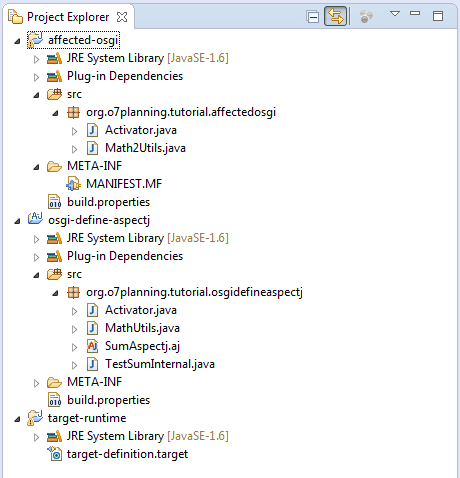
- osgi-define-aspectj
- is an osgi project as well as an aspectj project. This is also the definition of aspectj SumAspectj.aj
- affected-osgi
- is an osgi project, but it's not an aspectj project. It relies on osgi and is affected by aspectj which has definition as above.
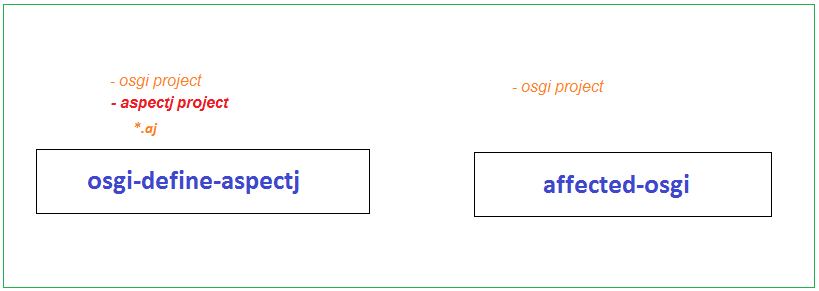
3. Project target-runtime
No ADS
Create a java project, with the name "target-runtime":

- File/New/Other
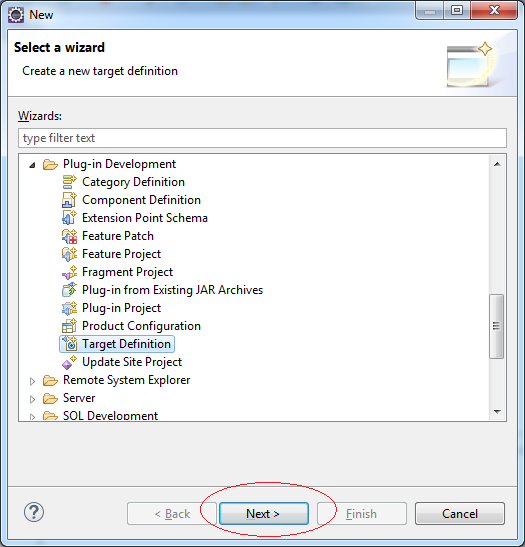
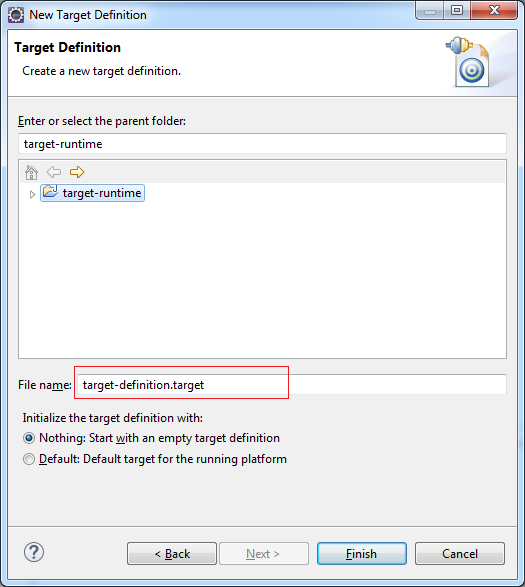
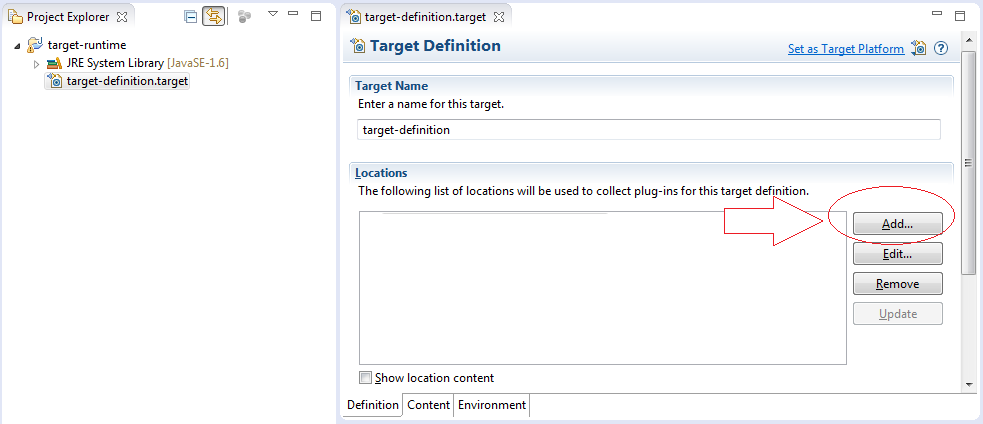
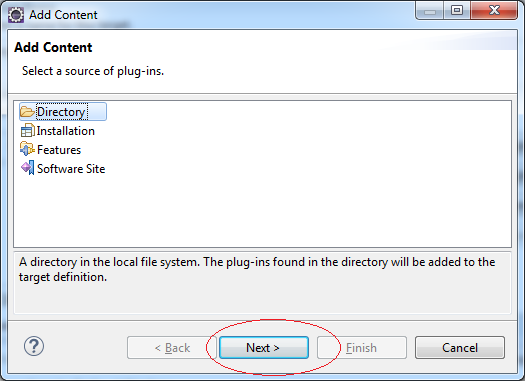
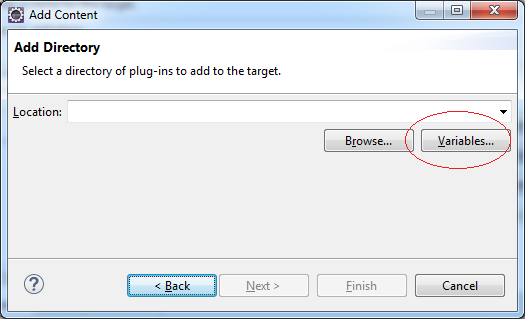
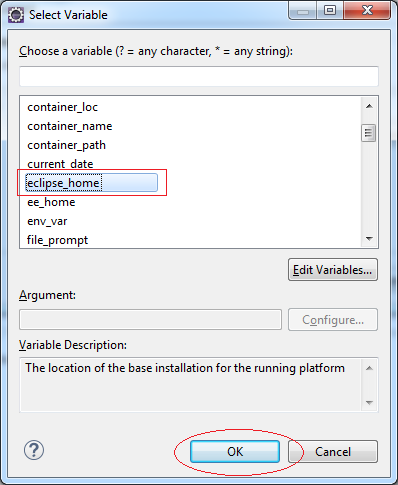
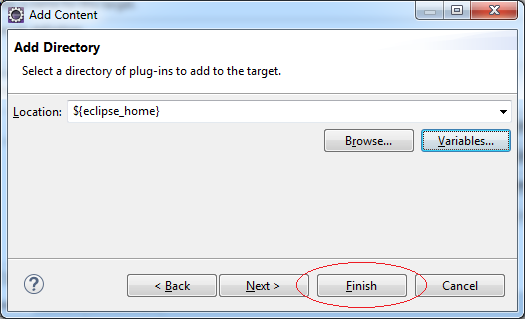
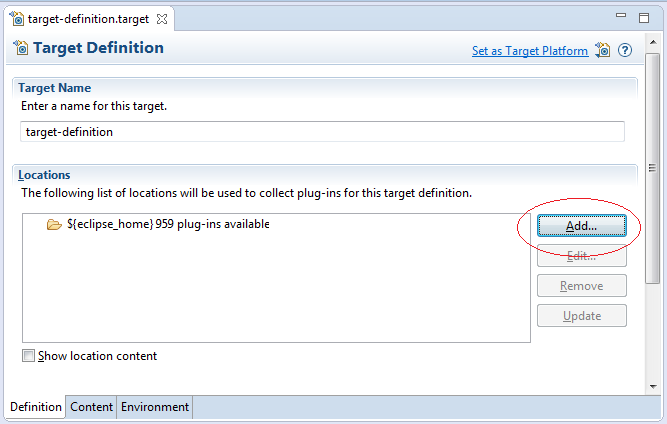
Copy:
- http://download.eclipse.org/tools/ajdt/47/dev/update/ (Eclipse 4.7 OXYGEN)
- http://download.eclipse.org/tools/ajdt/46/dev/update/ (Eclipse 4.6 NEON)
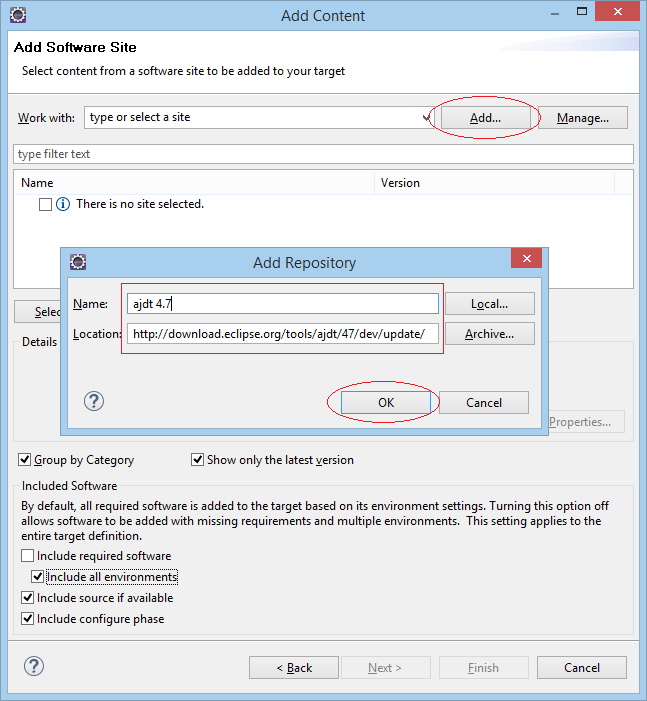
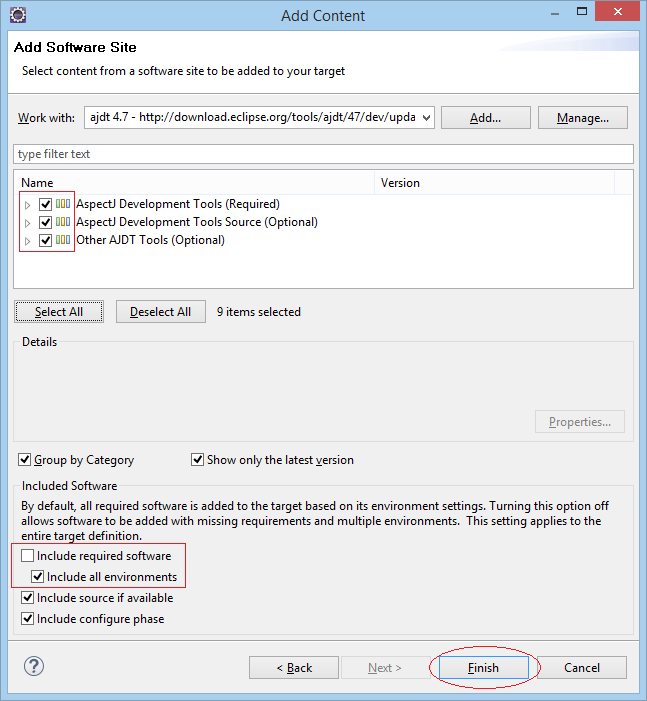
Finally click "Set As Target Runtime" to the runtime library affect to all project in the workspace
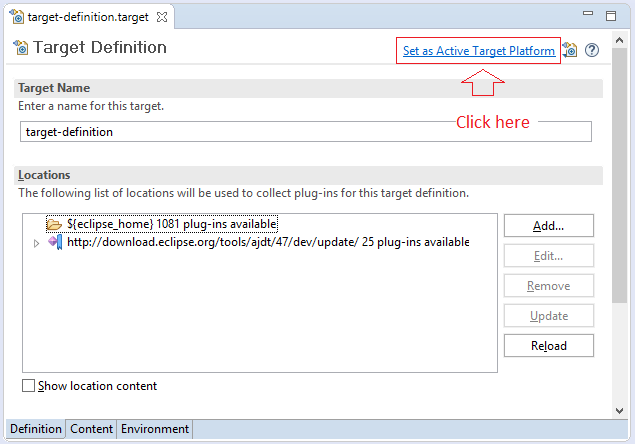
4. Project "osgi-define-aspectj"
No ADS
Create project "osgi-define-aspectj":
- File/New/Other..
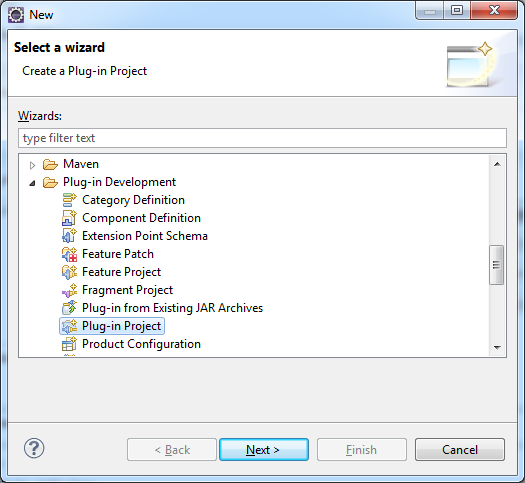
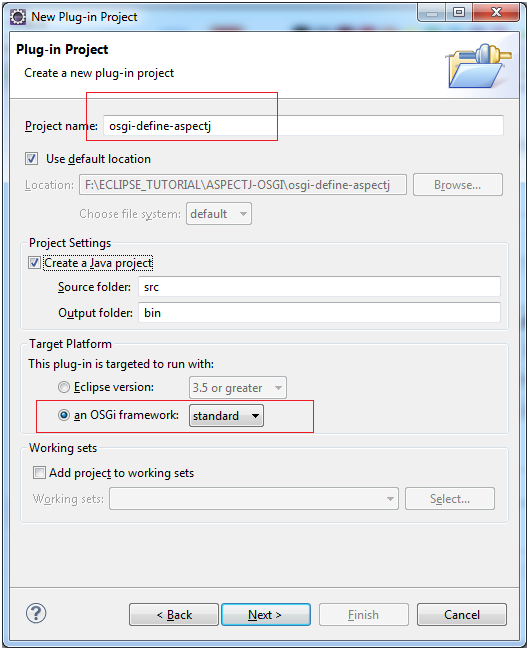
- org.o7planning.tutorial.osgidefineaspectj.Activator
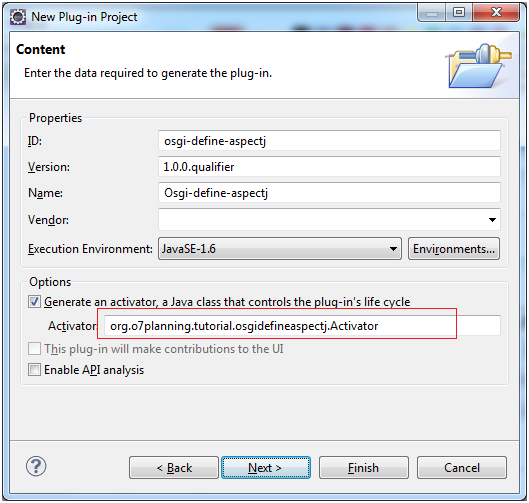
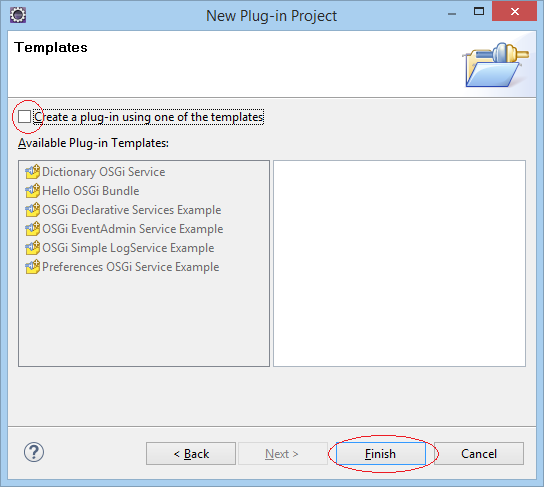
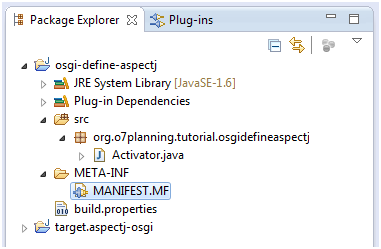
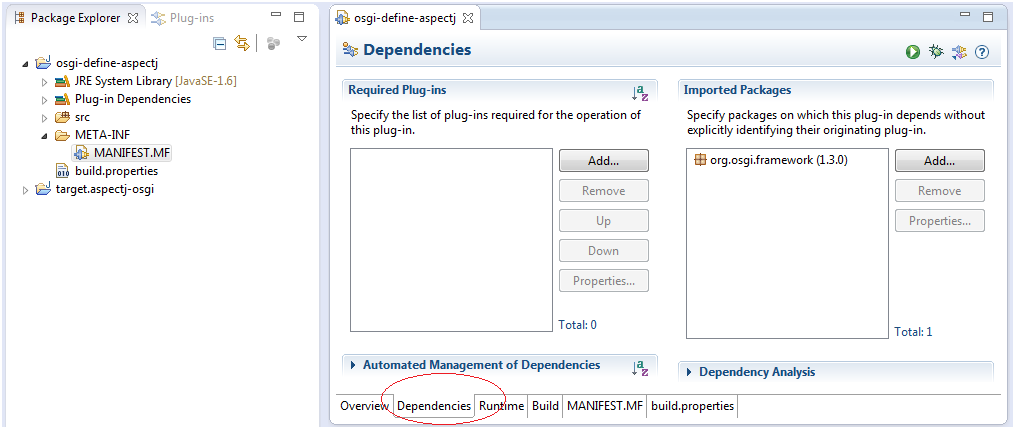
Convert this project into aspectj project:


Result:
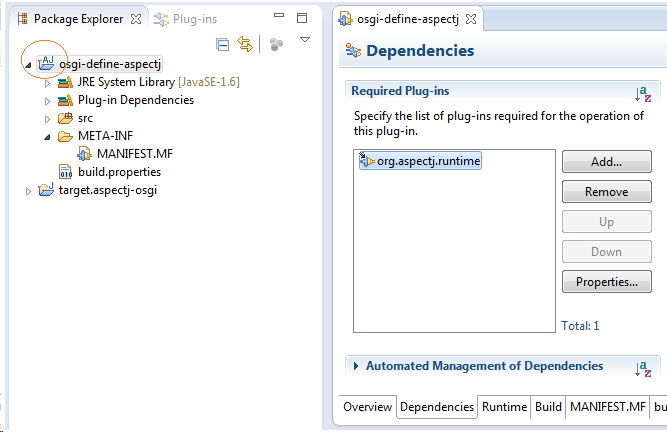
We will create some classes and an AspectJ to get a result as following pictures:
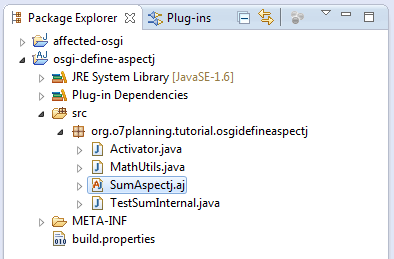
First, add aspectj "SumAspecj" and click on Eclipse:
- File/New/Others...
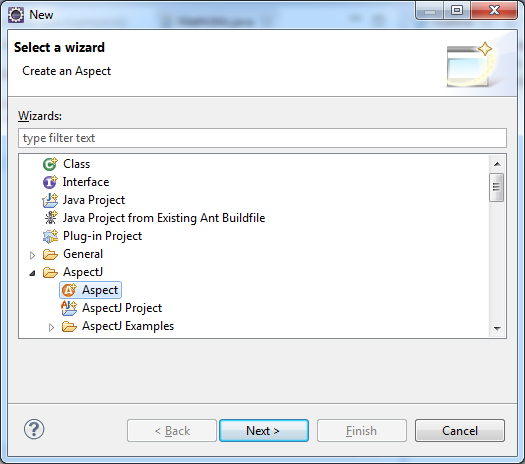
- Package: org.o7planning.tutorial.osgidefineaspectj
- Name: SumAspectj
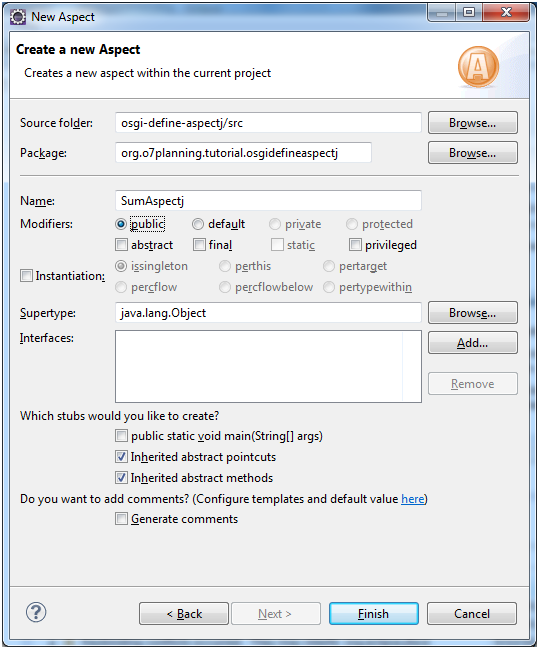
SumAspectj.aj
package org.o7planning.tutorial.osgidefineaspectj;
public aspect SumAspectj {
before() : execution(* *.sum(..)) {
System.out.println("Before execution sum");
}
}MathUtils.java
package org.o7planning.tutorial.osgidefineaspectj;
public class MathUtils {
public static int sum(int a, int b) {
return a + b;
}
}TestSumInternal.java
package org.o7planning.tutorial.osgidefineaspectj;
public class TestSumInternal {
public static void main(String[] args) {
int value= MathUtils.sum(10,20);
System.out.println("Value ="+value);
}
}Run class TestSumInternal, As a result. when the method with name of "sum" runs, aspectj SumAspectj will work and have text
"Before execution sum"
Next, we declare export package and aspectj in order to use the other osgi.
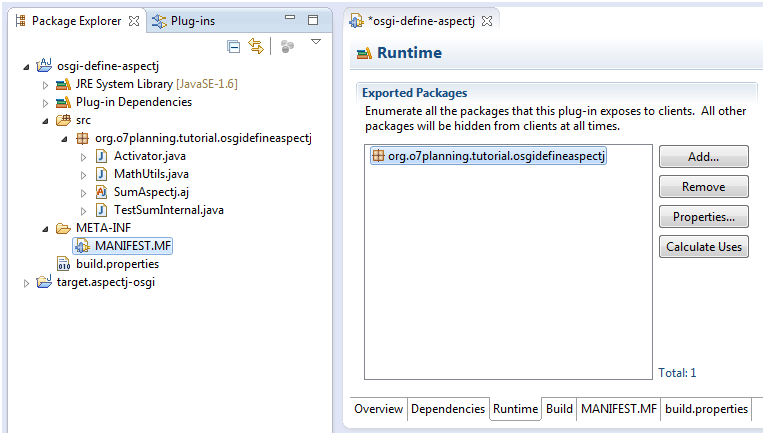
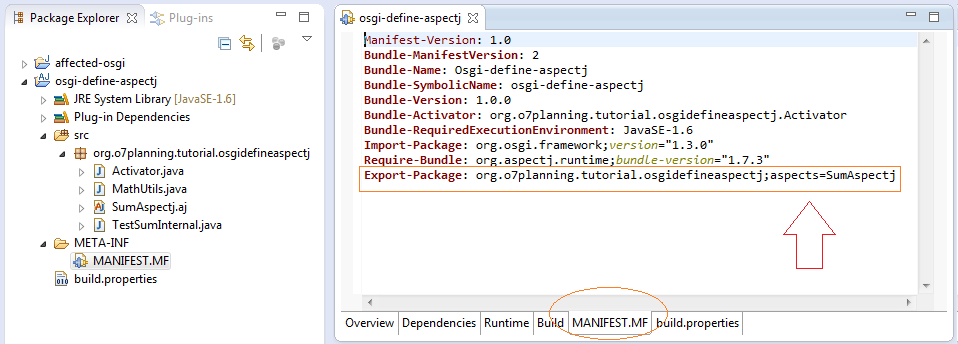
Until now, we can create an osgi project with aspectj, and it can completely run in this internal osgi.
However, every osgi bundle use its own ClassLoader, so aspectj can only use in this internal osgi. It need to have some configurations to affect the other osgi bundle. Work on a different project to be affected by aspectj which is declared on the project as above.
However, every osgi bundle use its own ClassLoader, so aspectj can only use in this internal osgi. It need to have some configurations to affect the other osgi bundle. Work on a different project to be affected by aspectj which is declared on the project as above.
5. Project "affected-osgi"
No ADS
Similarly, you can create the other osgi project with the name "affected-osgi".
Declare it to rely on osgi as "osgi-define-aspectj". Two bundles:
- org.eclipse.equinox.console
- org.apache.felix.gogo.shell
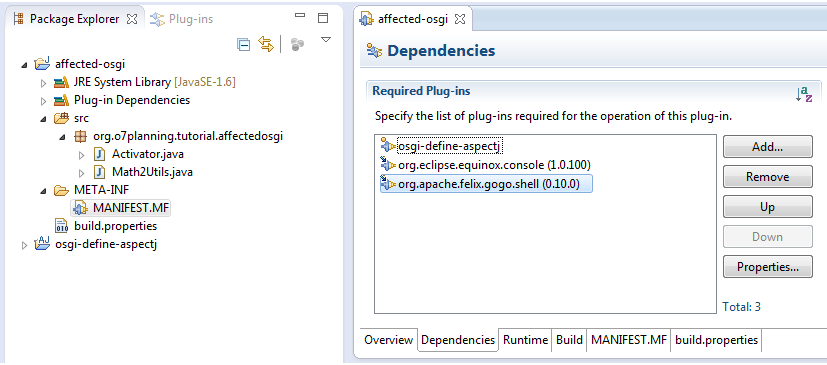
Math2Utils.java
package org.o7planning.tutorial.affectedosgi;
public class Math2Utils {
public static float sum(float a,float b) {
return a+b;
}
public static int sum(int a, int b) {
return a+b;
}
}Activator.java
package org.o7planning.tutorial.affectedosgi;
import org.o7planning.tutorial.osgidefineaspectj.MathUtils;
import org.osgi.framework.BundleActivator;
import org.osgi.framework.BundleContext;
public class Activator implements BundleActivator {
private static BundleContext context;
static BundleContext getContext() {
return context;
}
public void start(BundleContext bundleContext) throws Exception {
Activator.context = bundleContext;
this.testSumAspectj();
}
private void testSumAspectj() {
System.out.println("-----------------------");
int value1 = MathUtils.sum(100, 100);
System.out.println("Value =" + value1);
System.out.println("-----------------------");
int value2 = Math2Utils.sum(100, 100);
System.out.println("Value =" + value2);
System.out.println("-----------------------");
float value3 = Math2Utils.sum(100f, 100f);
System.out.println("Value =" + value3);
}
public void stop(BundleContext bundleContext) throws Exception {
Activator.context = null;
}
}Now we will configure to run OSGi "affected-osgi".
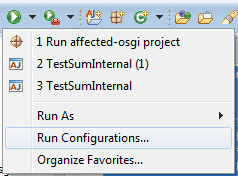
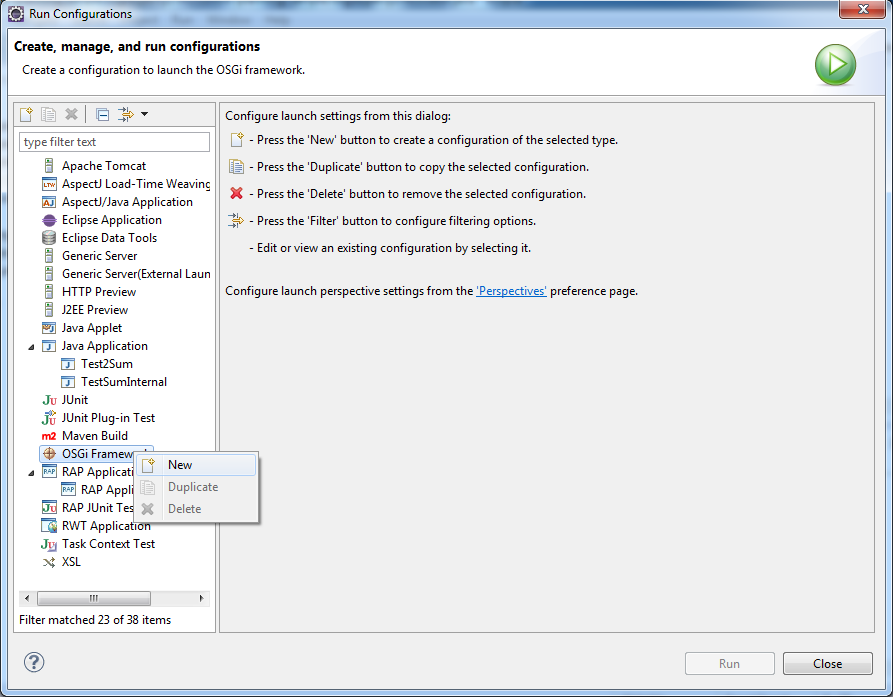
- Name the configured application "Run affected-osgi project".
- Check your two projects.
- Skip check all Target Platform
- Click on "Add Required Bundles" ,and Eclise can automatically calculates dependent bundles.
- Click Apply
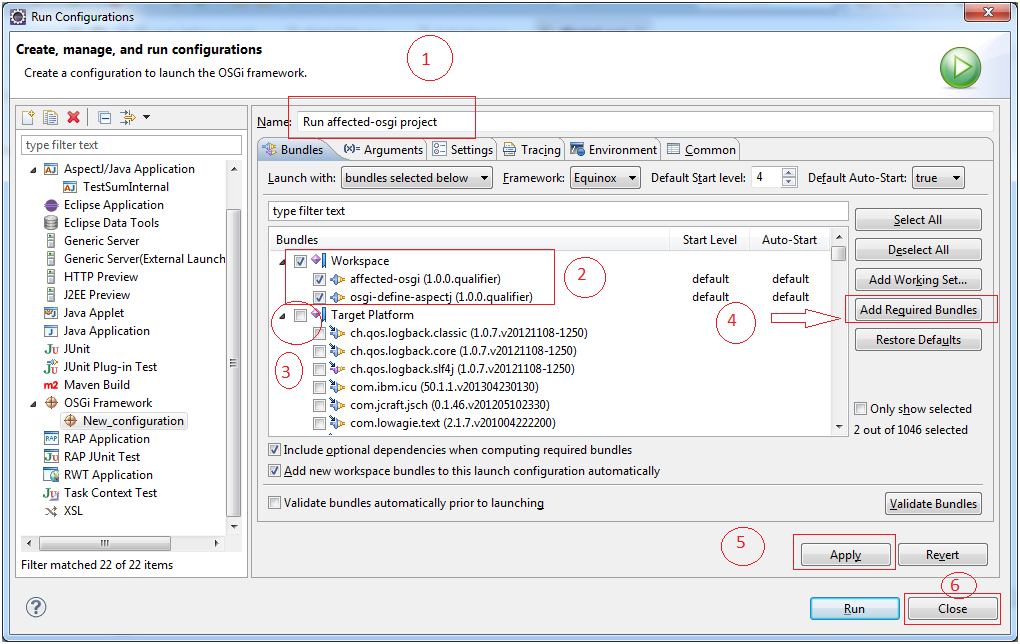
After running osgi project "affected-osgi", we have a result:
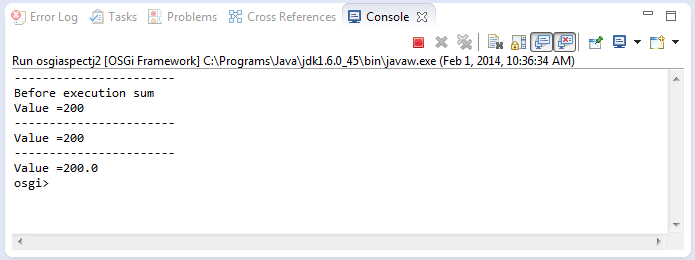
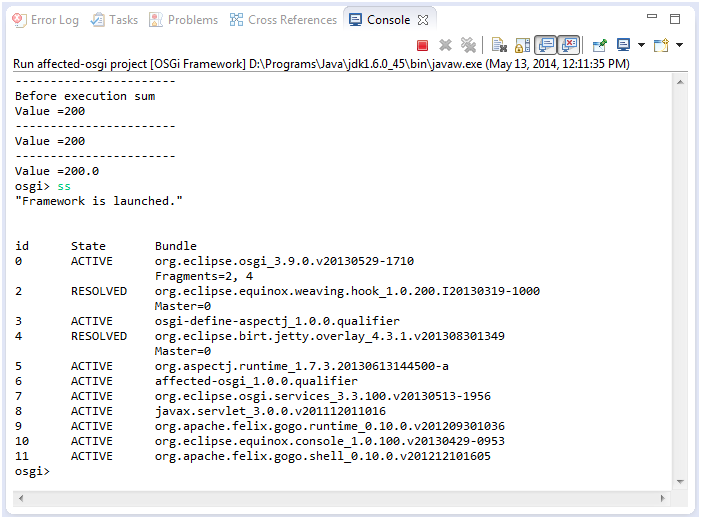
As a result, aspectj "SumAspectj" which is comfimedin osgi "osgi-define-aspectj" hasn't affected the other osgi.
Next, we configure to ensure that "SumAspectj" can affect the other osgi "affected-osgi".
Next, we configure to ensure that "SumAspectj" can affect the other osgi "affected-osgi".
Declare more bundles which required for osgi "affected-osgi".
- org.eclipse.osgi
- org.aspectj.weaver
- org.eclipse.equinox.weaving.aspectj
- org.eclipse.equinox.weaving.caching
- org.eclipse.equinox.ds
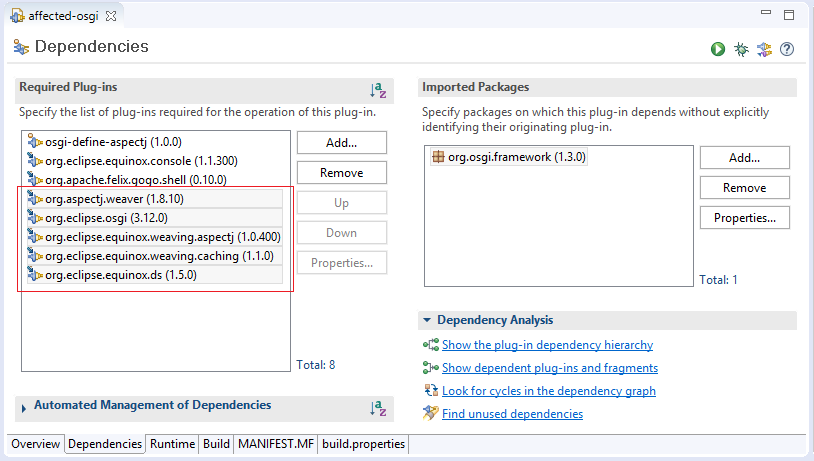
Declare the environmental parameters.
- -Dosgi.framework.extensions=org.eclipse.equinox.weaving.hook
- -Daj.weaving.verbose=true
- -Dorg.aspectj.weaver.showWeaveInfo=true
- -Dorg.aspectj.osgi.verbose=true
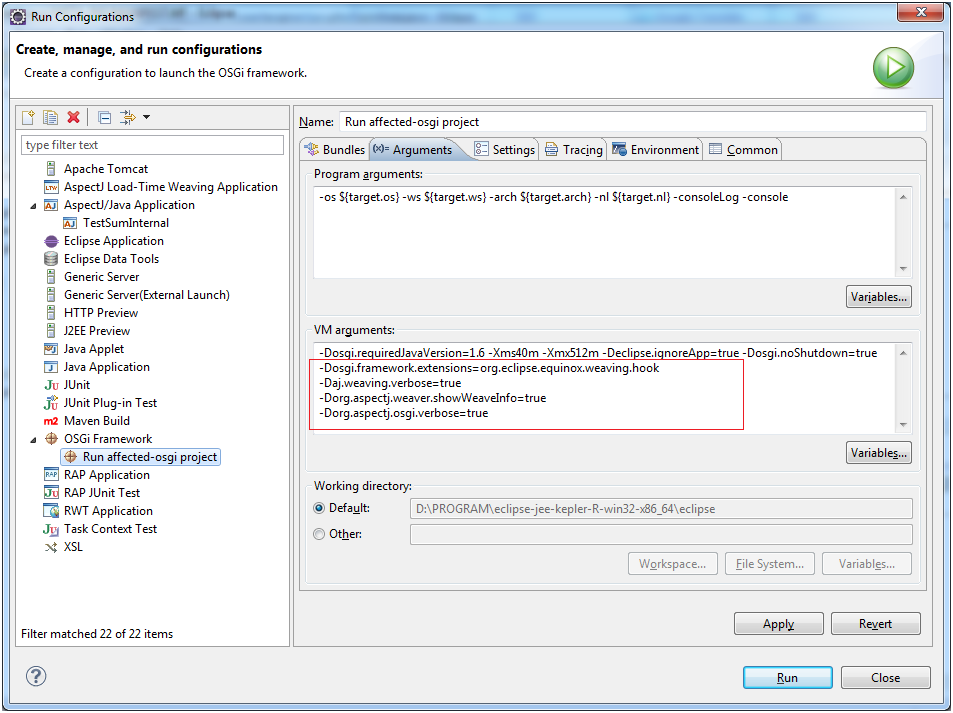
Declare fragments to extend for osgi "org.eclipse.osgi".
- -Dosgi.framework.extensions=org.eclipse.equinox.weaving.hook
You can add the following line to for to check errors (Debug):
- -Daj.weaving.verbose=true
- -Dorg.aspectj.weaver.showWeaveInfo=true
- -Dorg.aspectj.osgi.verbose=true
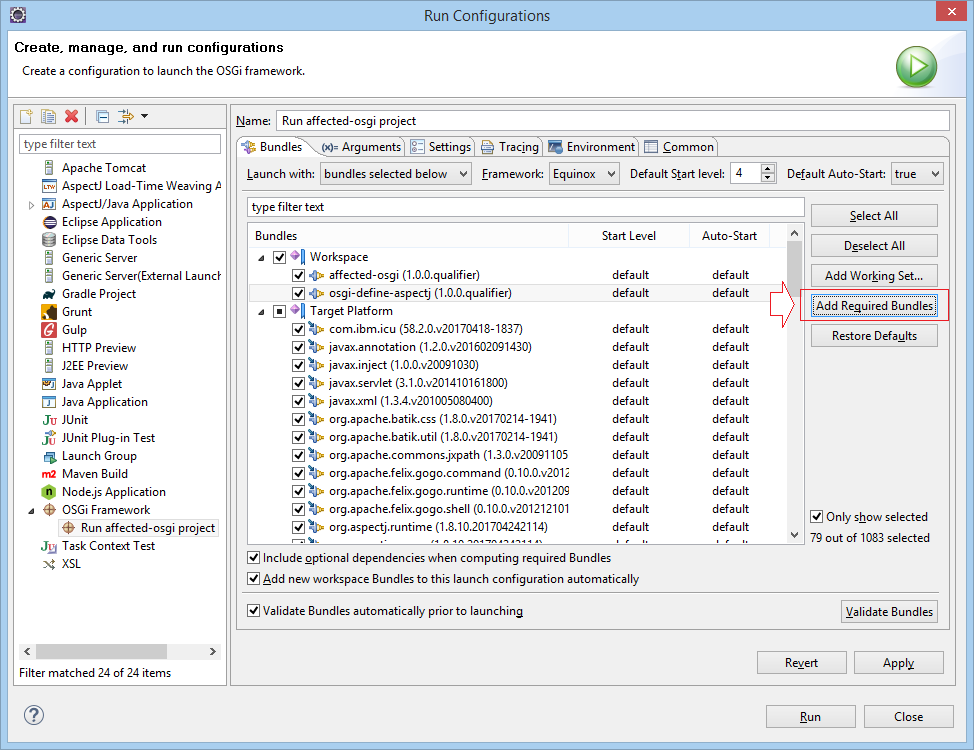
You ensure that the bundle "org.eclipse.equinox.weaving.aspectj" can automatically start at Level 2.
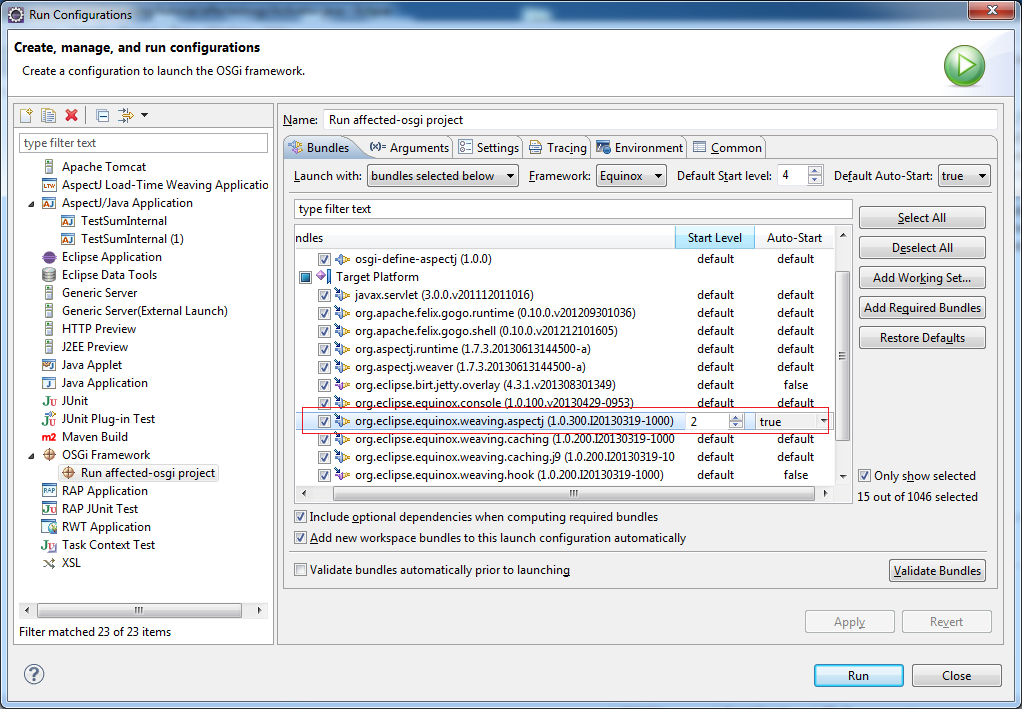
Finally, you can run osgi "affected-osgi" again , and this is the expected result.
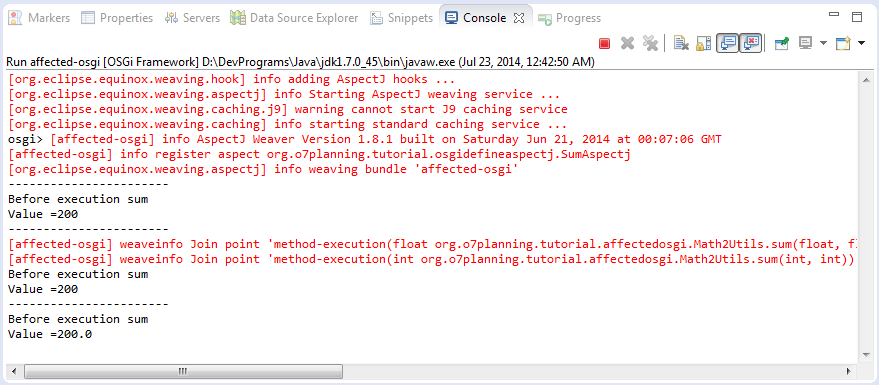
No ADS
Maven Tutorials
- Install Maven for Eclipse
- Maven Tutorial for Beginners
- Maven Manage Dependencies
- Build a Multiple Module Project with Maven
- Run Maven Java Web Application in Tomcat Maven Plugin
- Run Maven Java Web Application in Jetty Maven Plugin
- Install Tycho for Eclipse
- Create Java OSGi project with Maven and Tycho
- Create an Empty Maven Web App project in Eclipse
- OSGi and AspectJ integration
Show More